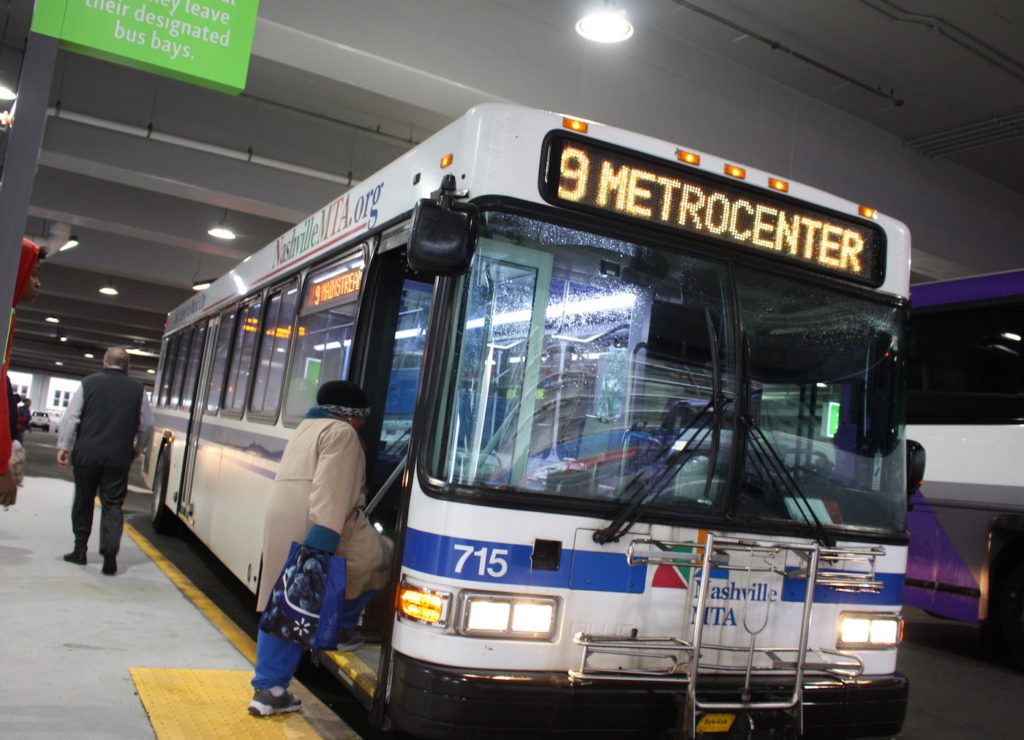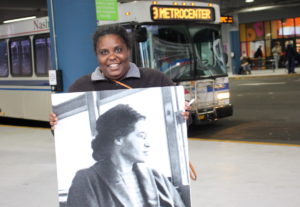
Nashville’s bus system is once again approaching a crossroads. The WeGo transit agency says it needs a 3% budget increase to maintain the status quo and avoid a second straight year of service cuts.
But at the same time, if money is available, WeGo is also proposing an expansion scenario that would extend service hours on its most popular routes.
For the past three budget cycles, WeGo hasn’t gotten what it requested — and actually lost more than $8 million last year. At the same time, inflation has pushed up the costs of bus parts, wages and insurance.
So WeGo CEO Steve Bland has asked for a $1.5 million increase, and told his board members that it is “reasonably possible” to believe Metro’s contribution will increase from $48.6 to $50.1 million.
“If we’re not able to achieve that 3% increase in Metro funding, it does send that signal that we really want to keep the transit system — the bus system — stagnant. At best,” Bland told WPLN News.
He notes the funding picture isn’t as dire as last year’s, but contends that WeGo has already made the most of various budget-slimming moves.
“This year, we don’t have as many of those tricks at our disposal,” Bland said. “We’re sort of down to a bare-bones system.”
The worst case scenario — in which WeGo’s “status quo” amount isn’t reached — could mean another round of service cuts or higher fares.
Such an outcome doesn’t sit well with lifelong bus rider Angelique Johnson, who has become a transit advocate recently with the Music City Riders United.
 Tony Gonzalez WPLN News
Tony Gonzalez WPLN NewsAngelique Johnson, with transit advocacy group Music City Riders United, recently honored Rosa Parks while interviewing bus riders about their transit needs.
“Bus riders faced a slap in the face last year with all the cuts,” she said. “We still struggling to get to and from where we need to be.”
Bus Expansion Scenario
But Johnson does have hope. She’s pushing for WeGo’s expansion scenario, which would move the system closer to running 24 hours a day.
“So maybe we can start this year … and hopefully the year after that expand,” she said.
For an additional cost of $2.2 million, WeGo is proposing longer hours: running earlier in the morning, later at night and on weekends on its top 18 routes. Service would go until 11:15 p.m. every day including weekends.
Those hours have been requested for years, especially by service workers who commute early or late. If approved, the expansion would probably happen in October, once 11 more bus drivers could be hired.
“And we want to resist the urge of saying, ‘Well, how can we do this, on the cheap?’” Bland said. “Because maybe it means we’re not cleaning the bus shelters the way that we should. Maybe we’re not working on security the way that we should. So we have to be able to invest not just in the actual cost of putting a bus out on the street, but on the side services that make it really attractive to people.”
WeGo’s expansion plan is known as the Better Bus project. The full proposal — over the course of 5 years — would expand service by 31% at an annual operating cost of $25 million more. The project would add 35 buses, 105 drivers and 100 bus stop shelters.
Whether Metro will advance those ideas this year isn’t clear, especially as Mayor John Cooper hosts his own series of transportation listening sessions.
Cooper said he is “of course inclined” to meet WeGo’s request, but that it would depend on the overall budget picture.
“I want to make sure it’s spent super well. Every dollar needs to have better service levels,” Cooper said.

